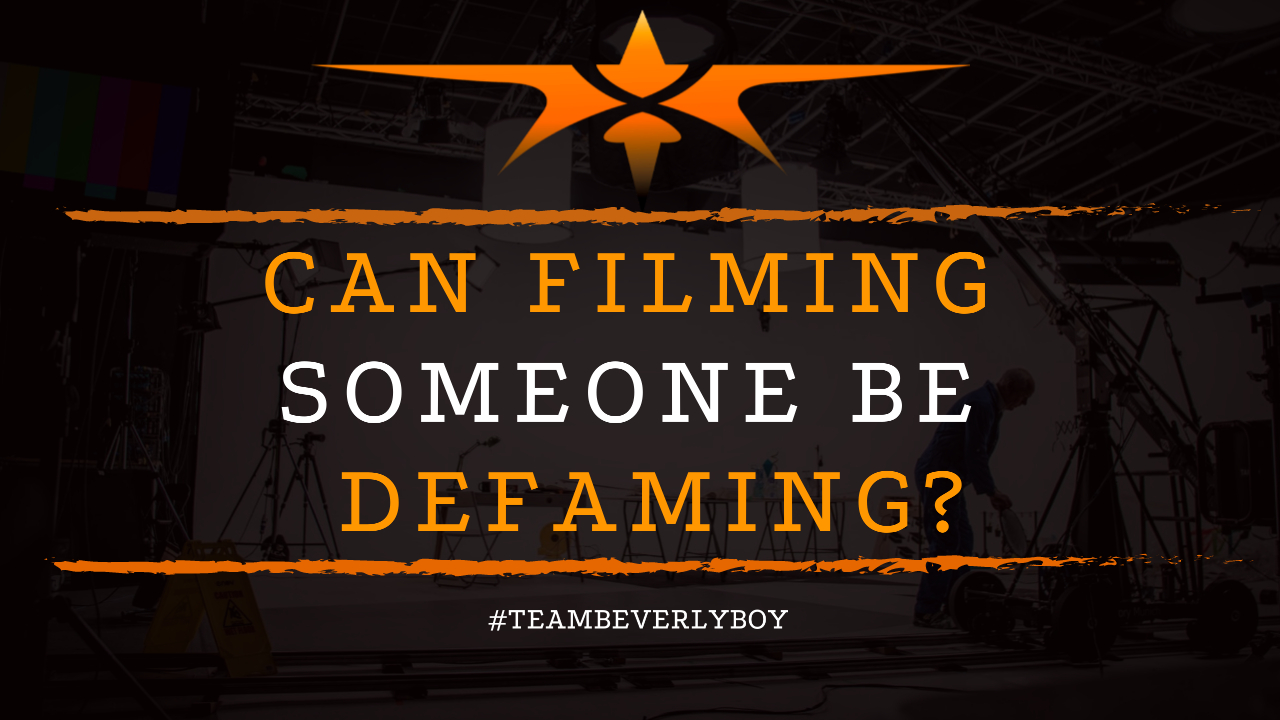
Can Filming Someone be Defaming?
As a filmmaker, you’re likely to face challenges associated with the potential for defamation if you don’t seek proper rights from those you film. You’re responsible for knowing what the rules and regulations are regarding filming people and acquiring the proper rights or permissions to use the footage, but when can filming someone be defaming?

Videos Can be Slander & Libel
Under a defamation lawsuit the terms “Slander” and “libel” represent key elements. Slander representing a verbal statement that is made about an individual and libel representing a written or published statement.
In instances in which a film is produced for public viewing. There’s strong potential for the content within the film to be representative of both slander and libel.
To determine if a film would potentially be defaming someone it must:
- Present something that is untrue as a fact to the audience.
- Damage or otherwise cause serious harm to the individual that is claiming defamation.
- False statements must be made with knowledge that what is stated is untrue. Or with reckless disregard for the truth which means the filmmaker did not act diligently to determine the truth.
When Can Filming Someone be Defaming?
Now you know how to recognize potential defamation of character in a film. And you understand that a film could potentially include defamatory statements that are categorized both as slander and libel.
Let’s take a look at answering a common question, “When can filming someone be defaming?”
Generally speaking
Filming someone can be defaming in a variety of different situations. In the past, there have been cases in which the way a story was portrayed in the media resulted in a defamation lawsuit.
One particular instance comes to mind in a particular documentary. In which Katie Couric was named a defendant. Along with documentary director Stephanie Soechtig and Atlas Film LLC along with the distributor of the film Epix.
All named defendants were brought to court for a defamation lawsuit filed by a gun rights activist group. This was due to the way that an interview that Couric performed with the group was portrayed on television.
Here’s what happened:
The documentary Under the Gun was filmed in 2016. In the process the filmmakers interviewed the plaintiffs who were members of the gun rights activist group the Virginia Citizens Defense League (VCDL).
The lawsuit claimed that during the interview, various questions were asked and their answers captured on camera.
However, prior to the interview, the filmmakers also captured b-roll footage. In which the camera crew stated to the group he was “calibrating equipment” and for them to simply sit silently for 10 seconds.
This was while the equipment was calibrating and at this time, cameras were in fact rolling.
The defamation comes up as follows…
At one point in the interview, Couric asks the plaintiffs, “If there are no background checks for gun purchasers, how do you prevent felons or terrorists from purchasing a gun?”
Now, the Plaintiffs did provide a very substantive answer to the question. In fact, their answer was six minutes long.
However, during editing, responses provided by the Plaintiffs were edited out in place of the pre-interview footage. This included a 10 second, silent pause. During which all of the Plaintiffs appeared as if they had no answer to the question.
Can you see how this is defaming?
Anyone who was there for the interview would know. That showing the plaintiffs being asked the question. And then showing no answer from them, is false.
Anyone that was there would also know that they did in fact have a detailed response. But for the millions on television watching? Seeing the “calibration” footage rather than the actual statements that were provided could make things look bad for the activists. And it did!
So, when can filming someone be defaming?
The truth is, filming someone can be defaming in a lot of situations. And if you don’t have permission to film them. As well as a release from any liability for defamation, you could face potential legal struggles if you do so.
Before you film someone, make sure you’re not capturing anything that could be considered private. And that you are not capturing a one-sided conversation that could be taken in a different way. Or that you are otherwise going to make the individual on camera “look bad.”
Otherwise, you could be defaming them in the process!



